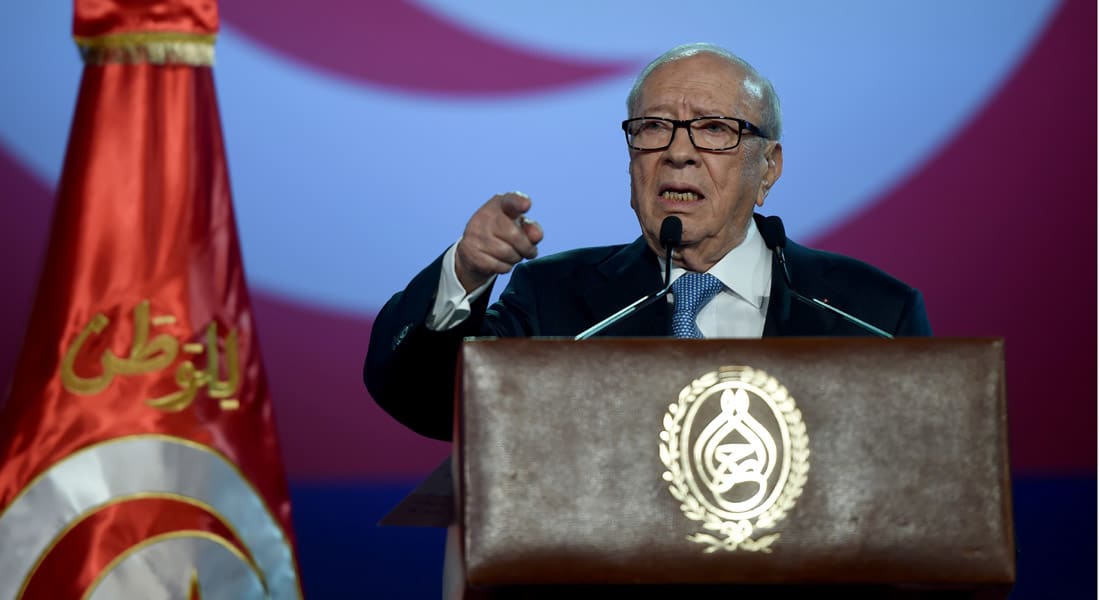تونس (CNN)-- لا يزال النقاش جاريا في تونس، بين مكونات الطيف السياسي ومنظمات المجتمع المدني، حول مشروع قانون المصالحة الاقتصادية، الذي طرحه الرئيس التونسي الباجي السبسي، بهدف تحسين مناخ الاستثمار، في حين اعتبرته بعض المنظمات والأحزاب تقويض للعدالة الانتقالية.
ونص القانون محل النقاش، الذي اطلعت عليه CNN بالعربية، في الفصل الثاني منه، على أن "توقف التتبعات أو المحاكمات أو تنفيذ العقوبات في حق الموظفين العموميين وأشباههم من أجل أفعال تتعلق بالفساد المالي وبالاعتداء على المال العام باستثناء تلك المتعلقة بالرشوة والاستيلاء على الأموال العمومية".
أما الفصل الثالث منه، ينص على أنه "يمكن لكل من حصل له منفعة من أفعال تتعلق بالفساد المالي أو بالاعتداء على المال العام تقديم مطالب صلح إلى لجنة تحكيم ومصالحة تحدث برئاسة الحكومة يشار إليها فيما يلي باللجنة".
وكان حزب التيار الديمقراطي المعارض، قد دعا، في بيان منشور على موقعه، "كل الأحزاب والمنظمات الرافضة لهذا القانون وكل التونسيين إلى المشاركة في جميع التحركات السلمية الرامية لإسقاط هذا المشروع والحفاظ على مسار العدالة الانتقالية".
هذا ولم تتوقف الانتقادات الموجهة لمشروع القانون عند حدود الأحزاب والمنظمات التونسية، بل امتدت لتشمل المنظمات غير الحكومية على غرار "هيومن رايتس ووتش"، التي قالت في بيان لها، إن هذه "الإجراءات من شأنها تقويض مسار العدالة الانتقالية".
وحذرت الرئاسة التونسية، عبر مدير ديوانها، سليم العزابي، في تصريح تناقلته وسائل الإعلام التونسية، من أن "تكون المعارضة التي تواجه مبادرة الرئيس التونسي هدفها حرمانه من حقه الدستوري في القيام بمبادرات تشريعية ومنعه من القيام بدوره واستعمال صلاحياته".
وفي صلب الموضوع، يقول المحلل السياسي التونسي محمد بوعود، في اتصال مع CNN بالعربية، إنه "إذا كانت هناك منظمات اعتبرت هذا القانون يقوض مسار العدالة الانتقالية ويقضي على مجهود الدولة في تفكيك موروث الفساد، فإن هناك منظمات وأحزاب قد قبلت به".
وأضاف بوعود: "الرئيس السبسي مُصر على تمريره للمرة الثالثة أمام مجلس نواب الشعب رغم أنه سقط في المرة الأولى من خلال محكمة مراقبة دستورية القوانين وفي المرة الثانية سقط خلال إقحامه في الفصول من 59 إلى 64 من قانون المالية 2016".
ورغم كل محاولته إسقاطه، غير أن "الرئيس السبسي لا زال يصر على تمرير القانون وكأن هناك شيئا ما يدفعه إلى هذا الاتجاه وكأن هناك قوى ضاغطة تدفعه نحو هذه المصالحة الاقتصادية، التي يقول عنها بأن تونس تستفيد منها كثيرا"، يتساءل محدثنا.
ويستطرد بوعود: "نظريا، المقصود من القانون هو تحسين مناخ الاستثمار، وضمان استرجاع الأموال من رجال الأعمال الفاسدين، مما سيسمح باستثمارها في مشاريع تنموية داخل البلاد"، مستدركا كلامه: "في المقابل مناخ الاستثمار قد تجاوزناها بكثير لأننا لم نعد نقدر على إيجاد مثل هذه المناخات".
وعلل كلامه قائلا: "هؤلاء الناس (رجال الأعمال) الذين مرت ست سنوات على مصادرة أموالهم أو منعهم من السفر أو الحجز على حساباتهم البنكية لا أعتقد أنه بعد هذه المدة لا يزالوا قادرين على الاستثمار وعلى بعث المشاريع من جديد".
واستند بوعود في حديثه لشبكتنا لتفكير بعض الأطراف المعارضة التي تقول، حسبه، أن "هناك فئة من رجال الأعمال قد ساعدت الرئيس الباجي السبسي إبان الانتخابات الرئاسية لكي ينجح وهو اليوم مطالب برد هذا الدين لها".
